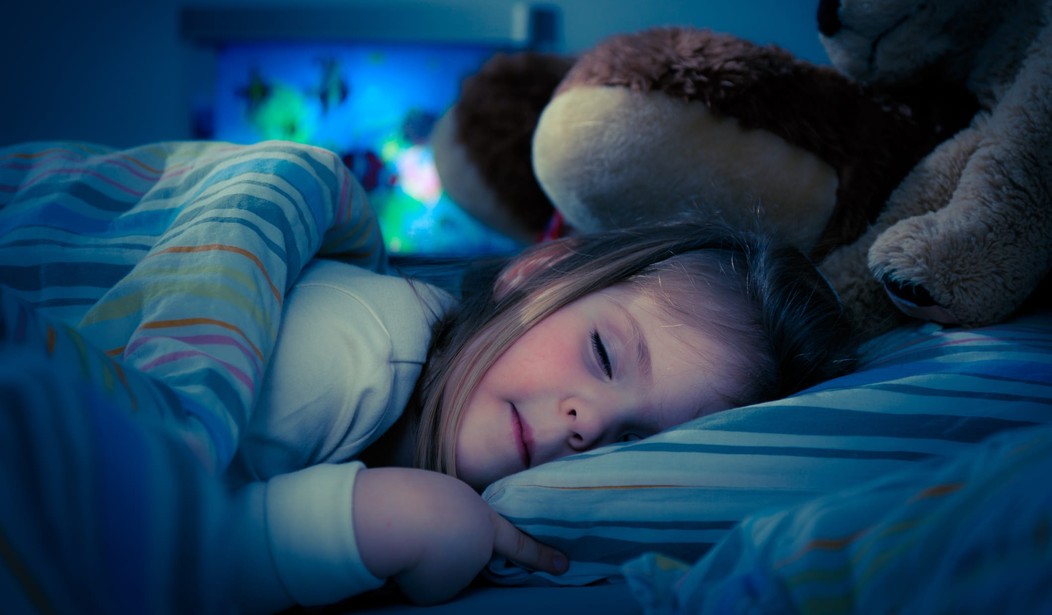In many respects, modern innovations have made parenting easier and more convenient than it was for previous generations. However, modern innovations also come with bad news for today’s parents. For example, the modern convenience of artificial light brings with it a host of potential negative long-term effects for kids.
New research details some of the ways in which being exposed to artificial light at night is harmful for young kids. Scarily, the study isn’t referring to light while children sleep (although, that’s harmful, too). No, the research interacts with artificial light that kids are exposed to before their bedtime.
Revealing that artificial light exposure at night almost completely stops the production of melatonin, the research points to how circadian rhythms are disrupted in children.
If you’re unfamiliar with the concept of circadian rhythms, it’s simply a term used to describe the natural physiological cycles of sleeping, waking, hunger, physical activity, body temperatures, and other important aspects of physical development and health. As the study says, “Melatonin is a hormone that is important for healthy circadian rhythms and good sleep,”
Disrupting the circadian rhythms in children does damage to their physical and mental development. In other words, this is not an issue that parents should treat lightly.
Predictably, one of the main culprits of artificial light that kids are exposed to before bedtime is the light emanating from TVs, computers, and smartphones. I’ve long advocated for severely limiting access to technology for children. This new research elevates my soapbox even higher.
Ten kids, ages 3 to 5, were exposed to bright light (~1000 lux from a light box) for one hour before their habitual bedtime, about 8 p.m. Melatonin suppression (where the body stops producing this hormone) began within 10 minutes and continued for another hour after the bright light was turned off at 8 p.m., which was well into their usual sleep period.
Three long-term effects of too much artificial light exposure are depression, suicide, and cancer. Researcher Jean Twenge studies the mental health of teenagers. Focusing much of her research on the effects smartphones have on mental health, Twenge “has found links between ‘new media’ screen time (e.g., smartphones) and risk of depression and suicide in teenagers based on two large samples of young people in the U.S.”
Supporting this new study about the harmfulness of exposure to artificial light before bedtime, Twenge “proposes as possible causes for her findings social isolation, sleep deprivation, or both. In another recent analysis, Twenge focused on sleep duration and concluded that “increased new media screen time may be involved in the recent increases (from 35 percent to 41 percent and from 37 percent to 43 percent) in short sleep among adolescents.’”
The study also points to the possible correlation between exposure to artificial light and cancer.
The basis for concern about cancer in children is the fact that ill-timed electric light can disrupt circadian rhythms, and circadian disruption has been implicated in cancers in adults, although few if any studies have directly examined cancer in children. The evidence for an effect in children is indirect, but the issue is critical.
Leukemia is the most common childhood cancer. It is a disease of uninhibited growth of white cells in the blood. These white cells are generated by stem cells, which when behaving normally produce just enough white cells for a healthy immune system to function as it should. When the stem cells go haywire, the result is leukemia. Recent studies have shown that the proliferation of stem cells is under circadian control. Thus, too much light at night could destabilize stem cell growth.
More research is needed, but enough is already available to cause parents to become more aware of their kids’ pre-bedtime activities. What’s more, as the research continues to roll in, it boggles my mind that parents allow their children to have hours of screen time a day.









Join the conversation as a VIP Member